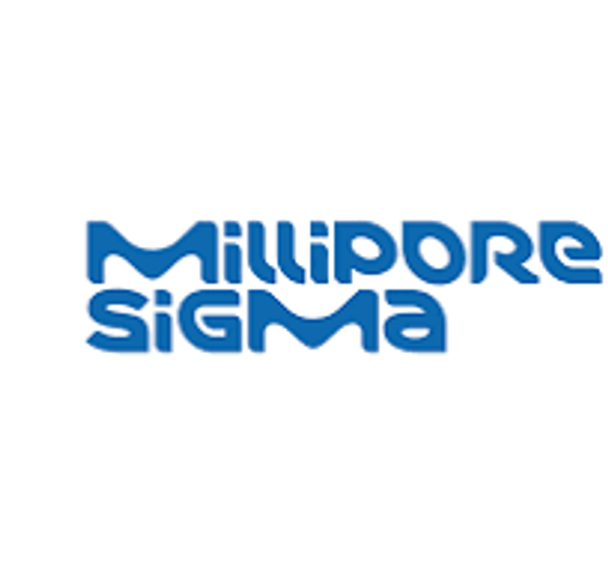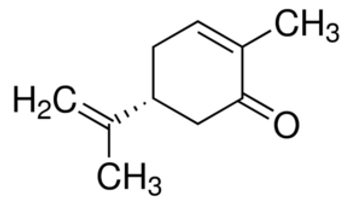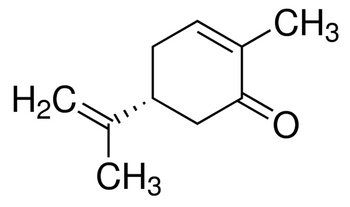Description
(S)-(+)-Carvone
96%
Synonym(s):
(+)-Carvone, (S)-5-Isopropenyl-2-methyl-2-cyclohexenone, p-Mentha-6,8-dien-2-one
Empirical Formula (Hill Notation):
C10H14O
CAS Number:
2244-16-8
Molecular Weight:
150.22
Beilstein:
2042970
EC Number:
218-827-2
MDL number:
MFCD00062997
PubChem Substance ID:
24867255
NACRES:
NA.22
PROPERTIES
Quality Level
100
Assay
96%
form
liquid
optical activity
[α]23/D +55.0±7°, neat
refractive index
n20/D 1.497 (lit.)
bp
96-98 °C/10 mmHg (lit.)
density
0.96 g/mL at 25 °C (lit.)
SMILES string
CC(=C)[C@H]1CC=C(C)C(=O)C1
InChI
1S/C10H14O/c1-7(2)9-5-4-8(3)10(11)6-9/h4,9H,1,5-6H2,2-3H3/t9-/m0/s1
InChI key
ULDHMXUKGWMISQ-VIFPVBQESA-N
DESCRIPTION
General description
(S)-(+)-Carvone, a monoterpene found mainly in caraway and dill seed oils, is used in cosmetic, food and pharmaceutical preparations.[1]
Application
(S)-(+)-Carvone can be used as a starting material to synthesize:
- (-)-Samaderine Y, a pentacyclic quassinoid.[2]
- (-)-Ambrox, a terpenoid responsible for the odor of ambergris.[3]
- 3β-Acetoxydrimenin (a sesquiterpene) via conjugated addition of potassium cyanide followed by base catalyzed Robinson annulation reaction.[4]
- Thapsigargin family members such as trilobolide, nortrilobolide, and thapsivillosin F.[5]
Packaging
(S)-(+)-Carvone, a monoterpene found mainly in caraway and dill seed oils, is used in cosmetic, food and pharmaceutical preparations.[1]
SAFETY INFORMATION
Signal Word
Warning
Hazard Statements
H317
Precautionary Statements
P261 - P272 - P280 - P302 + P352 - P333 + P313 - P362 + P364
Hazard Classifications
Skin Sens. 1A
Storage Class Code
10 - Combustible liquids
WGK
WGK 1
Flash Point(F)
204.1 °F - closed cup
Flash Point(C)
95.6 °C - closed cup
Personal Protective Equipment
dust mask type N95 (US), Eyeshields, Gloves





